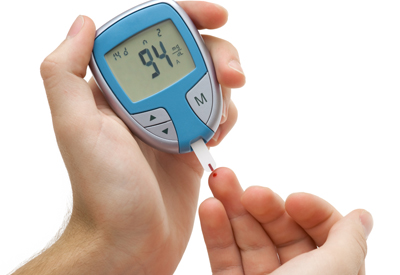Implantable ‘artificial pancreas’ could help diabetes patients control their blood sugar

|
Living with Type 1 diabetes requires constant monitoring of blood sugar levels and injecting insulin daily. Now scientists are reporting in the ACS journal Industrial & Engineering Chemistry Research the development of an implantable “artificial pancreas” that continuously measures a person’s blood sugar, or glucose, level and can automatically release insulin as needed.
Type 1 diabetes, previously known as juvenile diabetes, affects about 1.25 million Americans. About 200,000 of them are under 20 years old. The condition arises when a person’s own immune system destroys the pancreas cells that make insulin, the hormone that converts blood sugar into energy. To make up for this loss of insulin production, patients must take insulin daily. Current delivery methods involve multiple daily injections or insulin pump therapy, both requiring the user to actively track glucose and calculate the needed insulin dose. There is also a significant time lag between when a dose is needed and when it can take effect. Francis J. Doyle III and colleagues wanted to find a way to make monitoring and insulin delivery automatic and needle-free.
The researchers designed an algorithm that monitors blood sugar levels and computes an insulin dose that it delivers quickly and automatically when necessary.
The algorithm is designed to work with implanted devices, specifically with an artificial pancreas, and would overcome the delays experienced with current devices. Computer testing of the algorithm simulated the rise and fall of glucose that would correspond to meals and an overnight period of sleep. The artificial pancreas maintained blood glucose within the target range nearly 80 percent of the time. The researchers say they will soon test the device in animals.
###
The authors acknowledge funding from the National Science Foundation and the National Institutes of Health.
The American Chemical Society is a nonprofit organization chartered by the U.S. Congress. With more than 158,000 members, ACS is the world’s largest scientific society and a global leader in providing access to chemistry-related research through its multiple databases, peer-reviewed journals and scientific conferences. Its main offices are in Washington, D.C., and Columbus, Ohio.
To automatically receive news releases from the American Chemical Society, contact .(JavaScript must be enabled to view this email address).
###
Michael Bernstein
.(JavaScript must be enabled to view this email address)
202-872-6042
American Chemical Society
Print Version
Tell-a-Friend comments powered by Disqus





